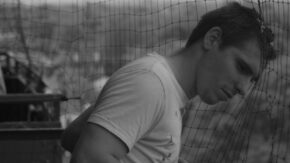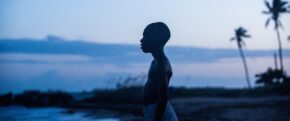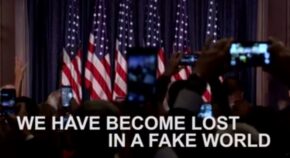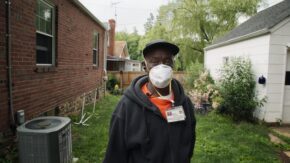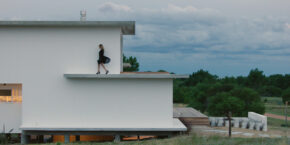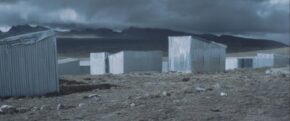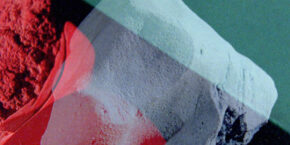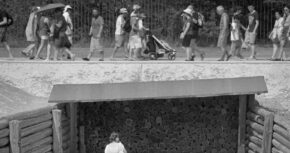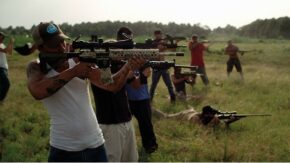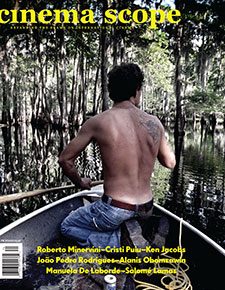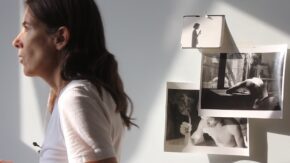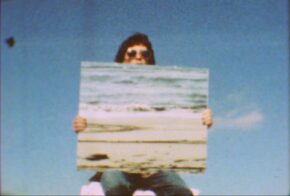CS69
Northern Exposure: Future//Present at VIFF
By Jordan Cronk | 12/21/2016 | CS69, From Cinema Scope Magazine, Web Only
By Jordan Cronk “This film tells the story of a boy who turned into a bird.” Portending something fantastic, these are the first words spoken in Tales of Two Who Dreamt, a cagey new feature co-directed by Andrea Bussmann and Nicolás Pereda. Set in an anonymous, rundown apartment complex on the margins of Toronto, this…
Read More → Moonlight (Barry Jenkins, US)
By Phil Coldiron | 12/19/2016 | CS69, From Cinema Scope Magazine, Web Only
By Phil Coldiron Liberty City, the Miami neighbourhood Barry Jenkins hails from and the setting for much of Moonlight, his exceptional second feature, has a median annual household income of under $22,000; 47% of its population lives below the United States federal poverty line, while nearly a third of working-age adults are unemployed. Grown up…
Read More → Cinema Scope 69 Editor’s Note
By Mark Peranson | 12/19/2016 | Columns, CS69, From Cinema Scope Magazine
By Mark Peranson We interrupt our regularly scheduled depressed editor’s note to instead speak from a place of anger-tinged despondency. Usually at this late point in the editorial schedule I’m wracking my brain to think of something interesting to say, and would likely complain about the lack of interest in the unprecedented reviews of 190+…
Read More → Rat Film (Theo Anthony, US)
By Jordan Cronk | 12/19/2016 | CS69, Fall Festival Spotlight, From Cinema Scope Magazine, Spotlight
By Jordan Cronk Searching society’s margins for cultural lifeblood is a timeworn trait of nonfiction cinema. With Rat Film, director Theo Anthony goes one step further, looking to the gutters of Baltimore, Maryland, for evidence of the city’s muted pulse. Aptly premiering in Locarno’s Signs of Life program, Anthony’s debut feature takes as its nominal…
Read More → Kékszakállú (Gastón Solnicki, Argentina)
By Jose Teodoro | 12/19/2016 | CS69, Fall Festival Spotlight, From Cinema Scope Magazine, Spotlight
By José Teodoro From the start of Gastón Solnicki’s Kékszakállú it seems like a boy’s boy’s boy’s world. In the opening moments three boys bound off a high diving board, followed by a girl whose hesitation is so prolonged the scene ends before we learn whether she follows suit or opts for retreat. We see…
Read More → Artifact Bonfire: Ken Jacobs and Reichstag 9/11
By Daniel Kasman | 12/19/2016 | CS69, Features, From Cinema Scope Magazine, Interviews
By Daniel Kasman I stopped looking at video footage of September 11, 2001, a long time ago as I find these moving images of expressionistically variable quality and cubist perspective anguished, frightful, and daunting. Two years after the attack, I moved to New York City, and over time I became a part of the city—or…
Read More → Super-Ornithologist: João Pedro Rodrigues’ Birdman
By Robert Koehler | 12/19/2016 | CS69, Features, From Cinema Scope Magazine, Interviews
By Robert Koehler It was a reminder of how much we desperately need stories and storytelling to make sense of the world when I saw one guy punch another guy in the face one evening on the UCLA campus in 1977. The guy getting punched had become all agitated arguing for his favourite book at…
Read More → The Working Hour: Salomé Lamas’ Eldorado XXI
By Michael Sicinski | 12/19/2016 | CS69, Features, From Cinema Scope Magazine, Interviews
By Michael Sicinski Salomé Lamas’ experimental feature Eldorado XXI is a film that we might call a “modified ethnography,” in the sense that Lamas has gone to a particular location—La Rinconada y Cerro Lunar settlement in the Peruvian Andes—to observe both the landscape and those individuals who populate it. But as with a number of…
Read More → Something, Everything: Manuela De Laborde on AS WITHOUT SO WITHIN
By Blake Williams | 12/19/2016 | CS69, Features, From Cinema Scope Magazine, Interviews
By Blake Williams First a title card, clean and neat; the film’s four-word name split and divided between the upper- and lower-centre regions of a large, red rectangle, itself surrounded by a thick black border. Cut to darkness. Mammoth blue grains of emulsion wriggling through near-black crevasses beside veins of softer blues and the occasional…
Read More → Austerlitz (Sergei Loznitsa, Germany)
By Jay Kuehner | 12/19/2016 | CS69, Fall Festival Spotlight, Festivals, From Cinema Scope Magazine, Spotlight
By Jay Kuehner If poetry after Auschwitz constituted an act of barbarism, then what can be made of curious tourists eating sandwiches, or snapping self-portraits, on the lawns of former concentration camps now repurposed as museums? The question isn’t so much posed as interrogatively embedded in Austerlitz’s conceptual framework, in which “dark tourism” is subjected…
Read More → Ceux qui font les révolutions à moitié n’ont fait que se creuser un tombeau (Mathieu Denis and Simon Lavoie, Canada)
By Adam Nayman | 12/19/2016 | CS69, Fall Festival Spotlight, Festivals, From Cinema Scope Magazine, Spotlight
By Adam Nayman How in the world did Ceux qui font les révolutions à moitié n’ont fait que se creuser un tombeau (Those Who Make Revolution Halfway Only Dig Their Own Graves) win the Best Canadian Feature prize this year at TIFF? I’m wondering this not because I think the film is unworthy, or necessarily…
Read More → From the Other Side: Exiled in Trumpland
By Roberto Minervini | 12/19/2016 | CS69, Features, From Cinema Scope Magazine, Interviews
I moved to the United States on October 22, 2000, to work as an IT consultant in New York City just a few days before the infamous presidential election that saw George W. Bush lose the popular vote and ultimately “defeat” Al Gore, after the conservative Supreme Court controversially halted the Florida recounts.
Read More → Issue 69: Table of Contents
By Cinema Scope | 12/19/2016 | Columns, CS69, From Cinema Scope Magazine, Table of Contents
This the full table of contents from Cinema Scope Magazine #69. We post selected articles from each issue on the site which you can read for free using the links below. This is only possible with support from our subscribers, so please consider a subscription to the magazine, or the instant digital download version.
Read More → Film/Art | News from Anywhere, Nowhere, Home: Notes on the BNLMTL
By Andrea Picard | 12/19/2016 | Columns, CS69, From Cinema Scope Magazine
“Le Grand Balcon” is the name of the brothel in Jean Genet’s 1957 play Le Balcon, where it serves as a “house of illusions” (as one of the characters calls it) rather than simply a house of pleasure or tolerance.
Read More → Global Discoveries on DVD: Mostly Items from Overseas
By Jonathan Rosenbaum | 12/19/2016 | Columns, CS69, DVD Reviews, From Cinema Scope Magazine
By Jonathan Rosenbaum 1. A package of wonderful releases arrived from Eureka’s Masters of Cinema series in the UK, all of them with exceptional extras. Here are the most exciting of these packages, in alphabetical order: Andre De Toth’s Day of the Outlaw (1959), in dual formats—a masterpiece of disequilibrium and the starkest of black-and-white…
Read More → Exploded View: Gary Beydler’s Mirror
By Chuck Stephens | 12/19/2016 | CS69, Exploded View, From Cinema Scope Magazine
By Chuck Stephens “Foghat haircut,” the critic scribbled. Onscreen, Gary Beydler (1944-2010), one of the greatest American experimental filmmakers of the 20th century, is seated atop what might be a tall white lifeguard’s chair, sporting jet-black aviator shades beneath a fluffy fringe of ’70s rocker locks. He holds a rectangular mirror, proportions roughly Academy ratio,…
Read More → Jackie (Pablo Larraín, US/UK/France)
By Adam Nayman | 12/19/2016 | CS69, Currency
By Adam Nayman In In the Line of Fire (1993), John Malkovich’s crack-shot-slash-crackpot gets off a wickedly funny line about JFK, gloating that the 35th Commander-in-Chief’s favourite poem was Alan Seeger’s “I Have a Rendezvous with Death,” which, he adds, “is not a good poem.” It’s a bad-taste joke touching on the verboten notion that…
Read More → 
